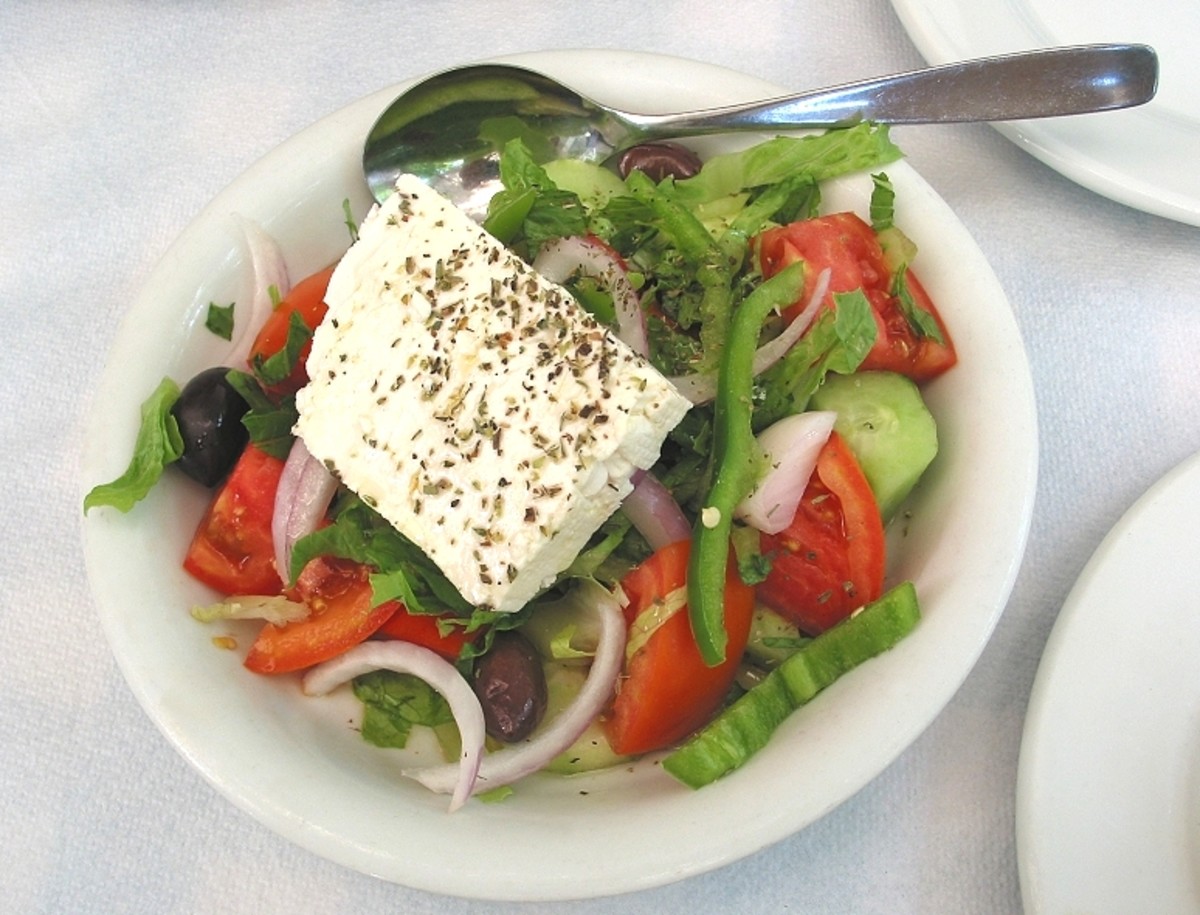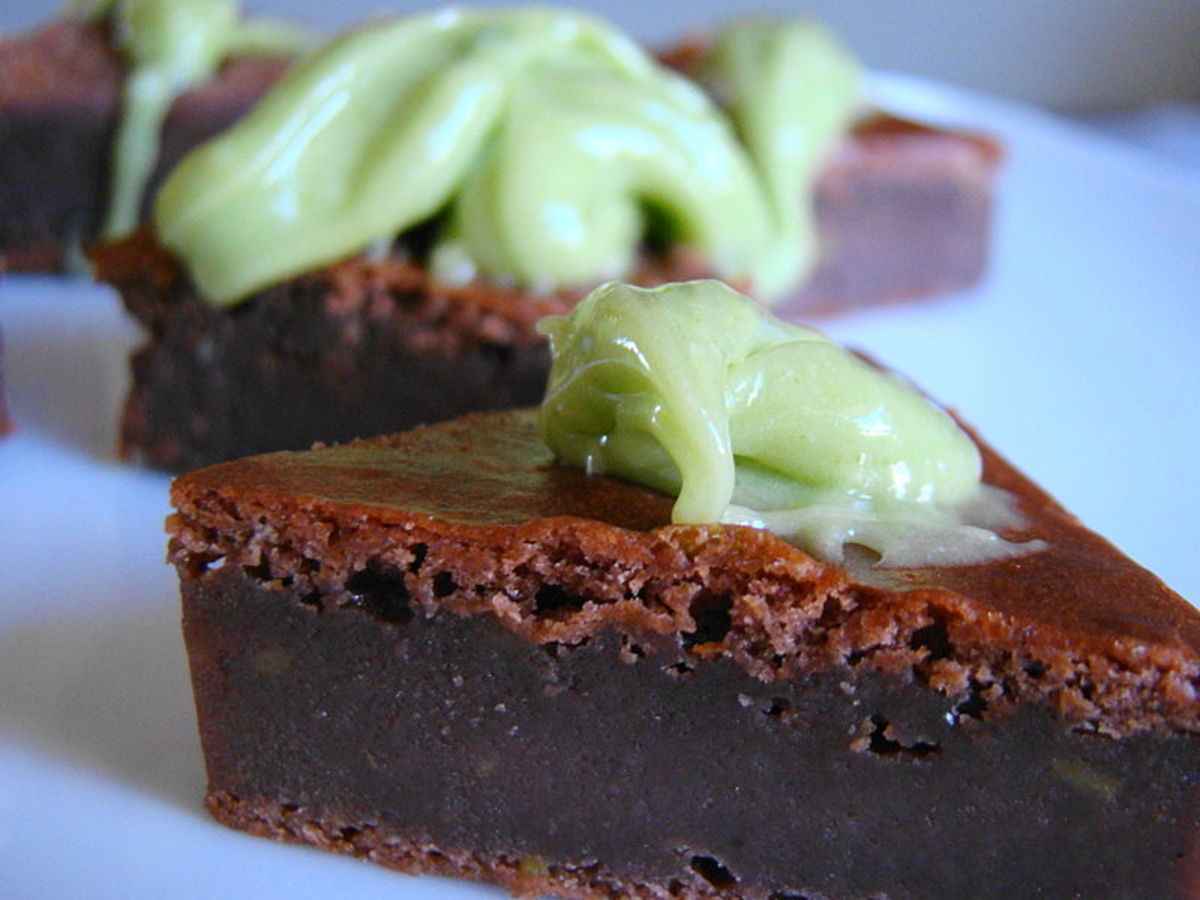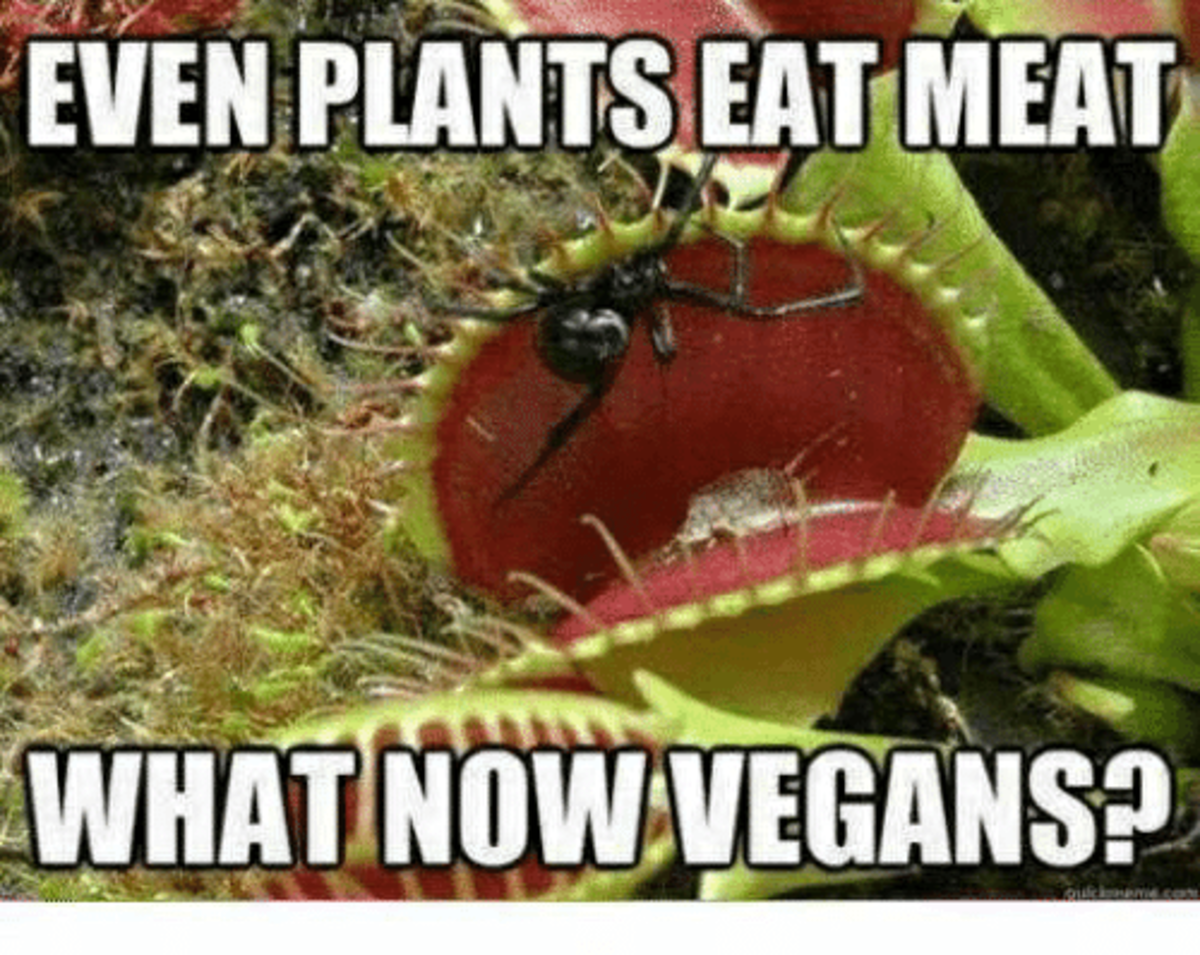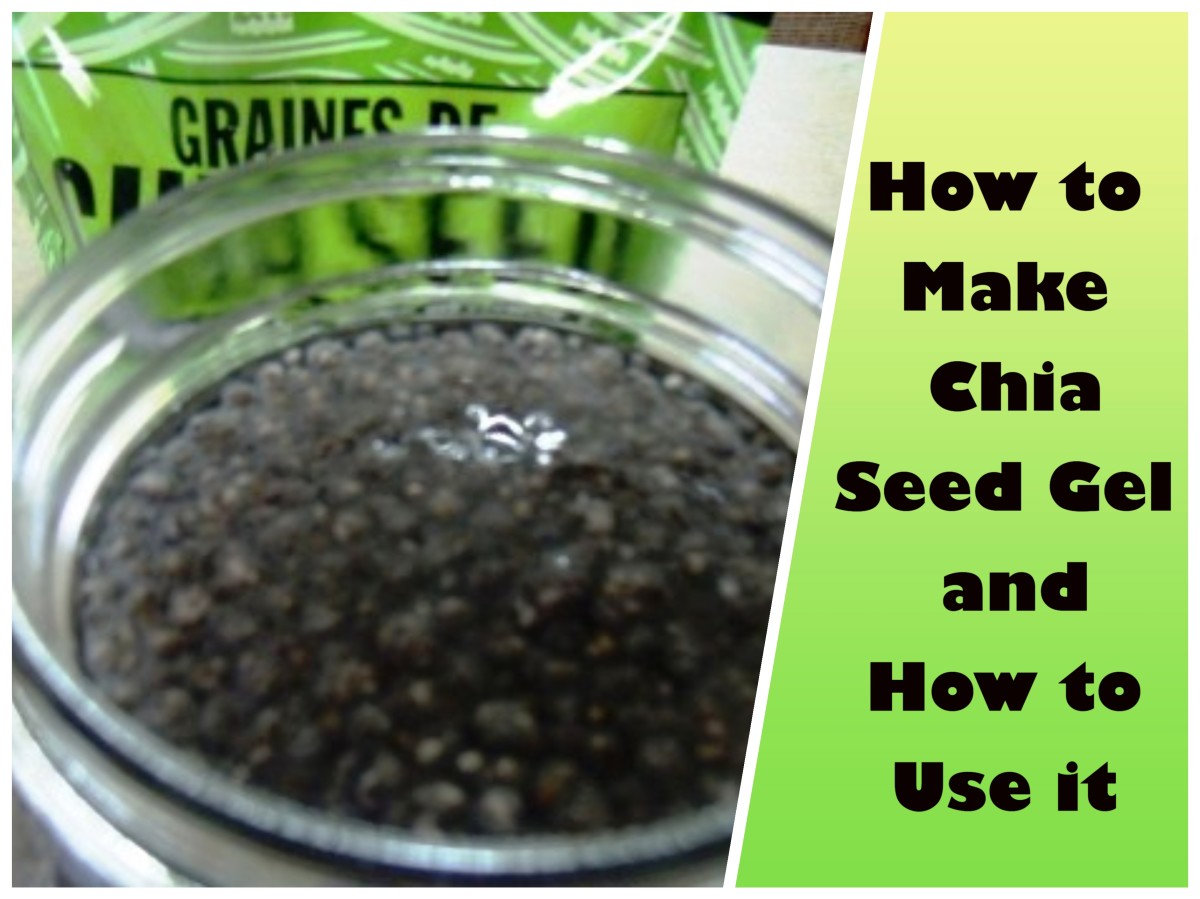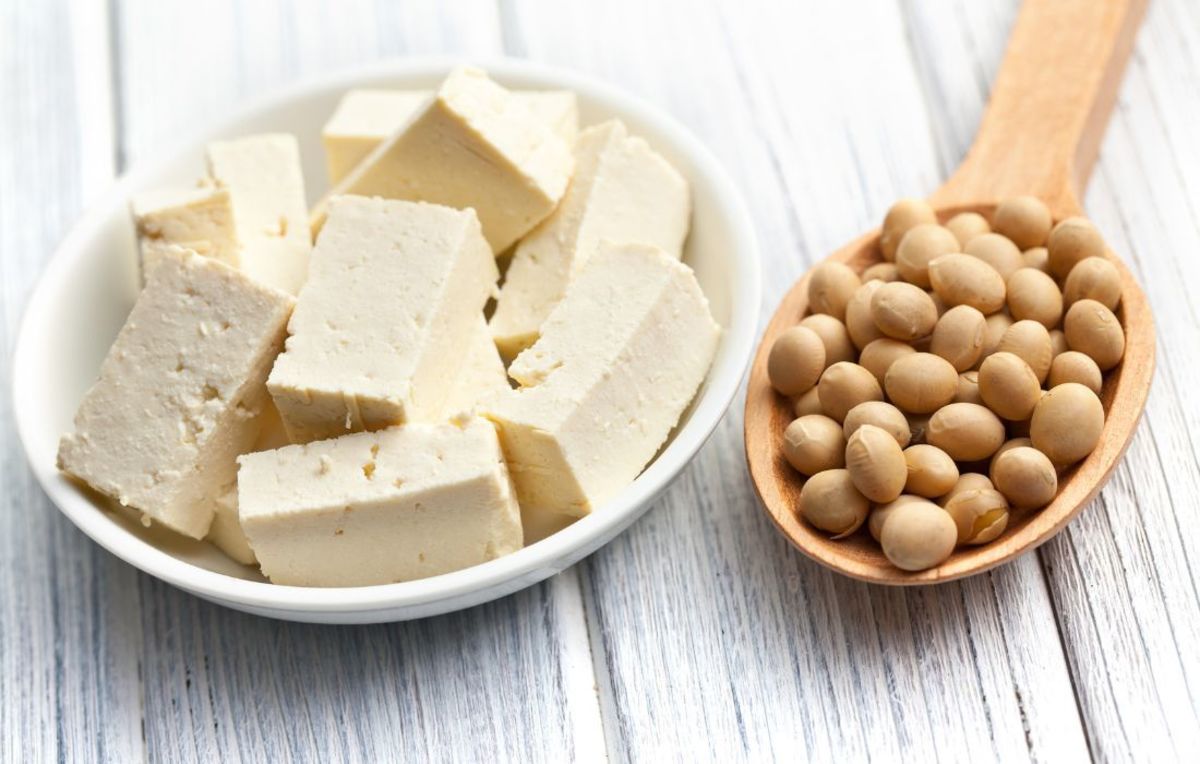Is a Vegan or Vegetarian Diet a Good Idea?
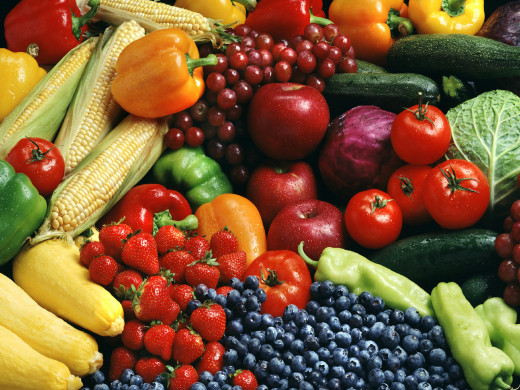
Carnivore? Omnivore? Vegetarian? Vegan?
An increasing number of people these days are considering removing meat from their diets. Depending on the individual, their justification for this will vary. Some do it because killing animals is cruel. Some do it because they want to be healthier. Some do it so they can be different and stand out. And of course, some people have their own reasons or a combination thereof. Before you make your choice however, let's do a compare and contrast between a diet with meat and a diet without.
The Healthiest Drink on the Planet
Benefits of Being a Vegetarian or Vegan: Better Overall Health
When it comes to vegetables, there's no denying the positive impact on one's health. Plant matter is inherently indigestible which is why is provides an ample supply of fiber, something our bodies need to maintain regularity and ensure good G.I. tract health.
People who only eat plant derived foods don't eat fatty meats, particularly red meats, which are high in saturated fat and cholesterol. This means that if you have a hereditary predisposition to heart disease, stroke, high cholesterol, etc., abstaining from meat altogether can help to offset the strike you already have against you.
Plants usually contain a lot of water, a lot of fiber and therefore tend to fill you up quickly, reducing the urge to eat. This alone can contribute to weight loss in a way that doesn't involve fighting your body's natural urges. If you need to shed a few pounds, the right selection of vegetables can curb your cravings and keep your midsection in check.
Vegetables are full of anti-oxidants, pigments, vitamins and other micronutrients. Many of these nutrients are difficult to get elsewhere except in supplements and have important roles in immunity and preventing certain cancers. Without them we would have shorter lifespans due to opportunistic infections and tumor that our bodies couldn't quite nip in the bud.
Cooking meat produces free radicals and other carcinogens that overload our ever-aging immune systems. Pumping these toxins into our bodies only makes it harder to detoxify and increases risk factors that cause premature death.
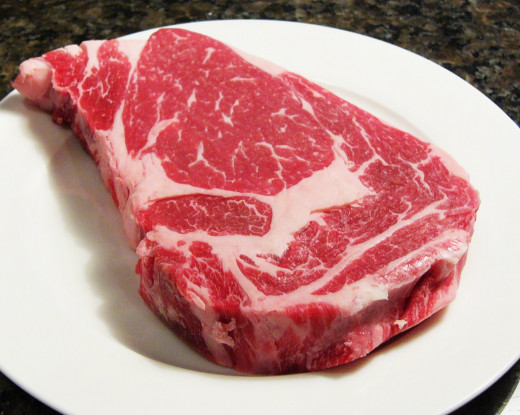
Benefits of Eating Meat: A Counter-Arguement
Unlike plant material, meat doesn't require mastication (chewing). Of course everyone chews their food but that old saying your mom fed you about chewing your food is particularly important for vegetarians and vegans because if you don't chew thoroughly, you don't break the cells up to access the nutrition inside. If you swallowed a grape it'd come out more or less the same way it went in. If you did the same with a piece of beef, if would digest completely. Therefore you get the maximum value out of meat irrespective of how well you chew.
Saturated fat and cholesterol are NOT bad for you. Both are necessary constituents of the body. Cholesterol for example helps maintain the integrity of cell membranes and is essential in protecting brain cells. Saturated fats surround vital organs (like the heart) to protect them, are more stable than vegetable oils at cooking temperatures, store vitamins and provide many other necessary functions in the body. As with all things, eat in moderation but that doesn't mean EXCLUSION.
While meat can sometimes be fatty and cause weight gain due to the fat's caloric value, meat in general is far less calorie dense than many plant starches and oils. Having avocado, Macadamia nuts or oatmeal will obliterate the calorie count of a piece of reasonably lean steak. Simply put, you have to be just as diligent eating vegetables as you do with meat so the weight loss argument isn't particularly compelling.
Perhaps most important of all, meat has something that plants don't have... something we NEED to survive. All proteins in the body are comprised of a limited number of amino acids. Some are essential and some are non-essential. By essential we mean that the body cannot synthesize these amino acids by itself and must get them from food. If you didn't consume foods containing these essential amino acids, you would die, simple as that. All animal tissue contains all essential amino acids whereas most plant matter does not. A particular plant-based foodstuff may have an insufficient amount of certain amino acids or it may have a poor density of all of them. What this means to the vegetarian/vegan is either supplementation or a very careful regimen of foods that all make up for each other's deficits. This makes eating a chore and a scientific endeavor while less meticulous people would simply exhibit signs and symptoms of malnutrition after a while.
As for cooking meat, it is important to specify how one cooks meat. Cooking at lower temperatures (still fully sufficient to kill all microbial contamination) prevents the formation of free radicals and carcinogens. In fact, saturated fat is quite a bit more stable at cooking temperatures than unsaturated plant fats, which is why, with proper technique, meat can be cooked as safely or more safely than vegetables. Whether we do that or not (coal BBQ is awesome) is another story ;)
Since the dawn of our species we have consumed all sorts of food spanning both the plant and animal kingdoms including insects and fungi. Perhaps if we had evolved more than one stomach, like the cow, we could subsist quite comfortably on plants alone. Is it any wonder that cutting our diet in half all of a sudden would have negative repercussions?

Benefits of Being a Vegetarian or Vegan: Animal Cruelty
By cutting meat out of one's diet, a group of people can effectively lower the demand for meat products, thereby lowering the supply or at least the supply liquidity. This means fewer animals being raised and slaughtered for food. Indeed the animals we eat are being brought into existence, to generally live an uncomfortable and unappealing life of being force-fed and injected with drugs while being treated questionably in some cases, only to be slaughtered once they reach the correct yield. Who knows what these animals are consciously aware of. Perhaps they can anticipate their demise before it happens, stressing them out and degrading the quality of their lives.
As a side-effect of using animals for food, once they are killed, other inedible (but still valuable) parts of the animal are exploited for things like leather, glue, etc. While some of these uses are strictly utilitarian, others, like leather, are often a popular fashion item. Is it right to parade around with a once-living being's carcass stretched across your back? For that matter, is it right to be killing animals at all to satisfy non-essential human desires?
Benefits of Eating Meat: A Counter-Argument
There is no "benefit" for the animals that they are slaughtered to suit our needs. What I can tell you is that animals in the wild are being brutally murdered by other animals every second of the day. Picture in your head a gazelle trying to cross the water and being viciously attacked by a crocodile, which violently rips the gazelles to pieces with no regard as to whether it actually kills the animal first, then consumes it, in that order. Perhaps a bit graphic, but when you appreciate the cruel reality of nature which has existed for millennia, the systematic way human beings slaughter animals seems pale by comparison.
More importantly however, humans are part of the food chain. We will take what we need from the ecosystem to survive. Our superior intelligence puts us on top, which gives us a great responsibility to bear. We need to be mindful that we handle animals as humanely as possible but, as we are meat eaters, we will participate in the predator-prey game, just like every other animal. It's not personal. It's just how life works. Why make ourselves and our children sick because of misplaced sympathy and incomplete understanding of how our physiology works? Are you smart enough to play chemist? Do you think a lion would hesitate to kill you if it was hungry? What we ought to be doing is policing the process of animal handling if it's unnecessarily cruel. That's time better spent.
Let's learn more about the internet demographic
What's your position?
You're Not Cool, a Point Both Sides Can Agree Upon
No matter what diet you have, I think I speak for all of us when I say, if you're going vegan or vegetarian to follow a trend or to be unique and for no other reason (you have to be honest with yourself here because nobody's going to make you admit that), then you have to get real and understand that you can't screw around with your diet Willy Nilly. If you do, your body will not lie to you about it. Educate yourself and do what you will with the knowledge and understanding that you're ultimately responsible for your own health so be careful.
Closing Remarks
You've probably guessed by now that I do eat meat. While I fundamentally disagree with taking meat out of our diets, I'm not "pro meat". There's no side to pick. I believe a healthy diet includes plenty of fruits, vegetables and grains, perhaps even insects (I'm not that brave). You just won't see me giving up the meat any time soon and for good reason. We don't choose our diet. Our bodies do. As I said before, you can try to play chemist and you may get away with it but it'd be like trying to drive a car with square wheels when there's a pair of round ones sitting right next to you. Whatever you choose, take ownership of that choice, as I do!


